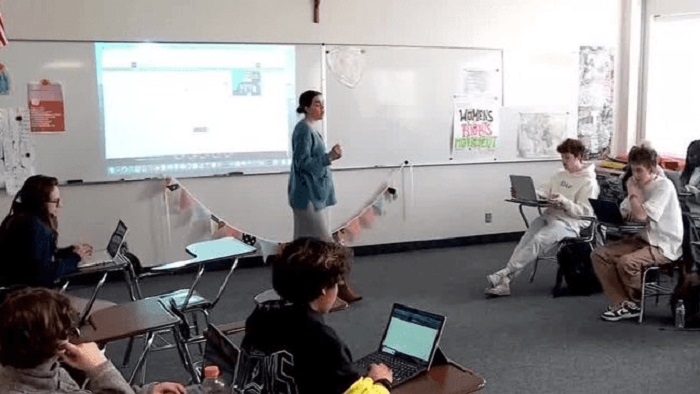Ogden, UT — The signing of House Bill 267 by Governor Spencer Cox, which effectively ends collective bargaining rights for public workers, has ignited heated debate among educators, lawmakers, and taxpayers alike.
The bill, which passed through the Utah legislature, has drawn widespread criticism from teachers across the state, many of whom argue that it will further strain an already struggling education system.
Amanda Sutton, a teacher with the Salt Lake City School District, voiced her frustration with the political battles that, she says, overshadow the real issues affecting students. “Students in Utah are already disadvantaged,” Sutton remarked. “If you demoralize teachers, cut their pay, and strip their benefits, of course, students are going to suffer.”
Sutton’s sentiments echo the concerns of other educators, such as Tara Stauffer of the Park City School District. Stauffer expressed her worry that the bill would disenfranchise public service workers, already feeling overworked and underappreciated. “We are already overworked, and I just have worries,” Stauffer said. “This is a way of disenfranchising them in subtle ways.”
The bill’s passage has sparked a ripple effect across the education community, with many fearing that it will make it even harder to retain teachers in the state. For those already grappling with low pay, large class sizes, and a lack of resources, the elimination of collective bargaining could be the final straw for some educators.
However, supporters of the bill argue that it will benefit taxpayers by reducing government spending. Proponents assert that the end of collective bargaining for public workers will allow for greater fiscal responsibility and a more efficient allocation of resources.
As the debate continues, it is clear that HB 267 has deepened the divide between those who believe it is a necessary step for budget control and those who see it as an attack on public service workers. For now, educators across Utah are standing firm in their opposition, warning that the impact on students could be long-lasting.
The fallout from this legislation is expected to unfold in the coming months, as educators, lawmakers, and the public grapple with its far-reaching consequences.

